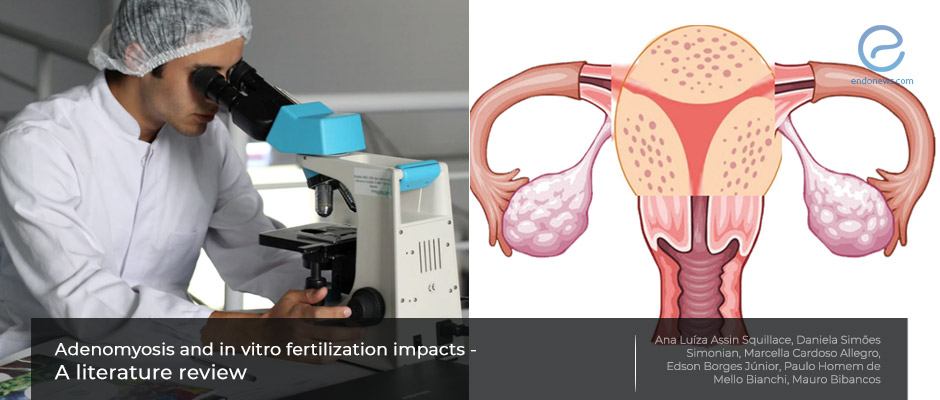The need for the standardization of diagnostic protocols for "adenomyosis"
Jun 29, 2021
Adenomyosis is still a dilemma in current medical practice
Key Points
Highlights:
- Adenomyosis is characterized by infiltrating endometrial tissue deep into the myometrium, which frequently coexists with endometriosis.
- How adenomyosis could adversely affect reproductive outcomes has not been fully understood yet.
Importance:
- Many women face the real impact of this condition during the management of infertility, and increasingly more women with adenomyosis require assistance for infertility problems.
What’s done here:
- A comprehensive review of the data published up to date was performed by the authors to define the effects of uterine adenomyosis on the probability of pregnancy by assisted reproductive technology.
Key results:
- Evidence-based clinical treatment options for adenomyosis in infertility management are difficult since is no clear relationship between fertility and the properties of adenomyosis.
- Standardized diagnostic protocols for adenomyosis are in need to screen for this condition before starting assisted reproductive approaches.
- Further studies in adenomyosis pathology and clinical work-up are necessary for successful infertility management for patients having this condition.
Current issues for research:
- Standardized diagnostic protocols are of great importance in screening for adenomyosis before starting assisted reproductive treatments.
- Successful management of infertility necessitates standardized studies both in adenomyosis pathology and clinical work-up.
Lay Summary
Dr. Squillace and associates from Brasilian Academic and Health Centers published their paper titled “Adenomyosis and in vitro fertilization impacts- a literature review” in a recent issue of "JBRA Assisted Reproduction".
As common gynecological ailment adenomyosis frequently coexists with endometriosis. Though there seems to be a causal relationship between adenomyosis and infertility how adenomyosis could affect reproductive outcomes adversely is not fully understood. Most women with adenomyosis face the real impact of this condition during the management of infertility management and the number of women with adenomyosis requiring assistance for infertility problems has been increasing currently.
This review of the data published on this subject defines the effects of uterine adenomyosis on the probability of pregnancy by in vitro fertilization and intracytoplasmic sperm injection.
Symptoms and clinical pictures suggesting adenomyosis are complemented by imaging methods like two-dimensional and three-dimensional transvaginal ultrasonography, and pelvic magnetic resonance imaging. However, adenomyosis's definite diagnosis is with a histopathologic evaluation of myometrial tissue samples that show clear-cut deep endometrial invasion.
Clinical and surgical approaches must be individualized, taking into account the patient’s special status such as age, parity, depth, and a number of adenomyotic foci, uterine volume, and, finally clinical presentation. Analyzing all the published data, it is clear that there exists a large number of biases in the studies carried out, which, in addition to being only observational, consider different features for selection especially the modality used to diagnose adenomyosis. Another important drawback is coexisting other gynecological diseases, such as uterine myomas and, especially, endometriosis; conditions that are also associated with pelvic pain and dysmenorrhea.
Final remark from the authors is, “standardized research in adenomyosis pathology and clinical workup is necessary for successful infertility treatment in patients with this condition”.
Research Source: https://pubmed.ncbi.nlm.nih.gov/33656838/
adenomyosis infertility endometriosis IVF ICSI

